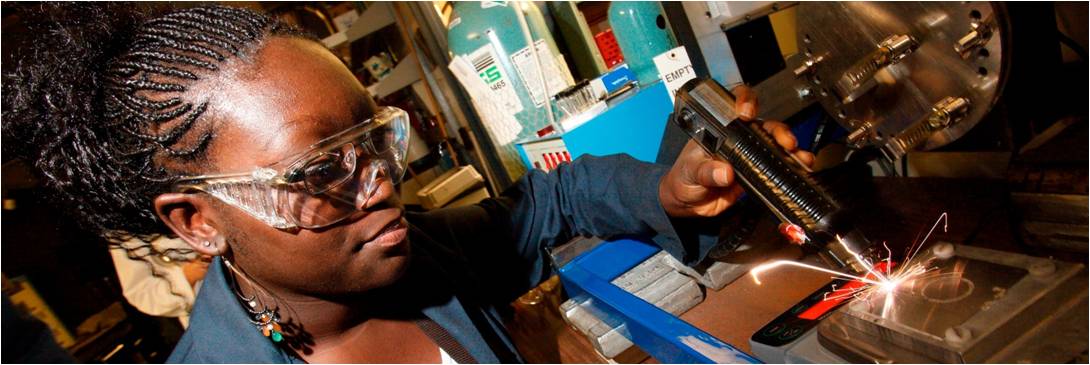
Welcome to McGill Materials Engineering
Materials engineers combine a solid fundamental knowledge of the structure and properties of materials with a creative spark and all the engineering skills necessary to create new materials and improve those that already exist. They work with any type of material: metals, ceramics, polymers and composites. In our program, we deal with all of these materials using them to make coatings for airplanes, prosthetics for bone replacement, nano-sized sensors, and much more.
The Materials Bachelor of Engineering program is a Co-op program where students work for up to 12 months in an industry complementing their studies with applied research. Materials Co-op students have been employed in companies such as: ArcelorMittal, Bombardier, Canadian Space Agency, GE, Hatch, National Research Council, Natural Resources Canada, Novelis, Pratt and Whitney Canada, Rio Tinto, Teck, Vale Inco and Xstrata. General information on the materials engineering field can be found here. Students may also participate in the Summer Undergraduate Research Program (SURE) and do summer research in one of our research labs.
Finally, our department has the lowest student-to-professor ratio within the Faculty of Engineering and a world class research program with more than 200 undergraduate students and 100 graduate students from all over Canada and some 20 countries around the world supported by state-of-the-art laboratory equipment.
What is Materials Engineering?
Everything, every electronic gadget, airplane, chair, or light bulb uses materials to make them. Materials engineering improves these materials to make your electronics faster, your airplanes lighter, your chairs stronger and your light bulbs brighter. Here is a short video prepared by our McGill MetSoc Student Chapter.
What do Materials Engineers Do?
Materials engineers touch all scales (from the nano-scale to the kilo ton) and all aspects of the life of a material. Materials engineers refine raw ore, like iron ore, synthesize advanced composite materials, analyze the service life and failure, and ultimately, recycle the material.
What Types of Jobs Do They Get?
Materials Engineers are trained for a great variety of jobs. They can improve and test materials, as well as develop new ones. They can analyze why a part failed or do consulting, modeling, refine ore, or ensure quality standards. You can visit our Alumni Profiles to learn about some of our recent graduates.
Job Experience
The McGill Materials Engineering Co-op Program (accredited by the CEAB) will give you a year of paid job experience, resume writing, job searching and interview skills.
Small Class Sizes
Since it is a small program, students form close bonds with each other. The faculty know and regularly interact with students and the staff members know the students by name.

